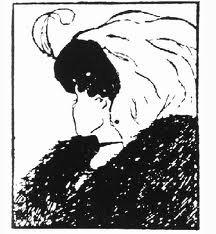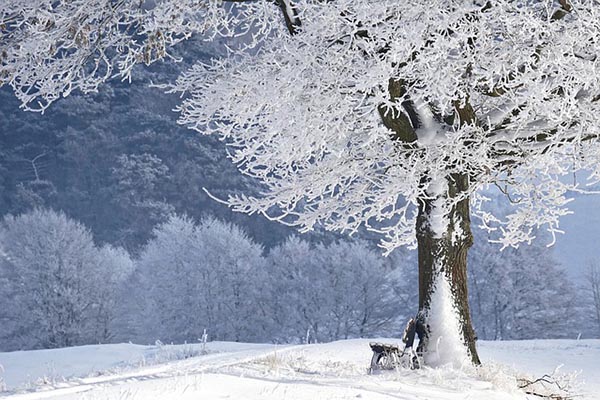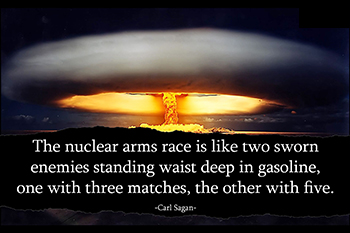On Death and Dying…
 Following World War II, twelve million service members returned home, married, and started families. This is the start of the “Baby Boomers” who now are 63 and aging. Although retirement is heralded as the “Golden Years” it often comes with baggage, turning hopes and dreams into a nightmare of taking care of the parents of the Boomers.
Following World War II, twelve million service members returned home, married, and started families. This is the start of the “Baby Boomers” who now are 63 and aging. Although retirement is heralded as the “Golden Years” it often comes with baggage, turning hopes and dreams into a nightmare of taking care of the parents of the Boomers.
This article focuses on the growing plight of the legal requirement in this state of Virginia and twenty-seven other states that require you, the Boomer, or younger, as the adult child of your parents, to be responsible for their care and maintenance.
That impacted me when I was about age 50 and I had a legal and of course social-moral, and Christian charity obligation to take in and support completely my ageing parent. The options were limited and at that time the State facilities were in closure leaving nursing home care at exorbitant expense. This curtailed my savings for my daughter’s college education. In fact all of our family financial plans and goals were stopped dead in the water and a new life pattern emerged. Other rapidly appearing problems evolved in managing an irritable, combative personality who was senile, in my home who required basic nursing care following hospitalization.
Granted that less than 2% of the aged community requires physical assistance on into the very late age, however situations do come to pass for which few, if any are prepared to deal with. Namely, and especially in this depressed economy, a lack of money and limited social services are a contributing factor in family separations, family dysfunction and most certainly stress.
We had to make rapid and thoughtful goal steps to deal with a new uncertain future. After investigating options we decided to purchase a “summer home”- a 26-foot Mallard self-contained camping trailer and ensconced her in that setting with a five-foot chain link fenced yard enclosure so she could not wander off, which was expected. Some people suggested a mobile home installation but that would have raised the tax base and tremendous expense for a permanent structure that would be abandoned in time.
This seemed like an acceptable situation as I could deliver hot meals daily, provide social comforts and protect her from self-harm. Little did I realize that caring for a senile ambulatory elder involved the fact of what we consider normal hygienic self-motivated habits did not exist. My elder defecated in the bathtub and smeared feces on the walls.
This was becoming a full time nursing job and I was exhausted in three weeks. This was not like caring for a baby- this was real full time care work. The elder’s problem was not physical; it was dementia-senility-Alzheimer’s.
Granted when we look at the total population there is but a small number of elderly that become senile. The bigger problem appears to be temporary with physical needs. In 2005 7% of those between seventy-five and eighty-four, and only 25% of those over eighty-four needed help with personal care. Surprisingly about sixty percent of the elderly have Alzheimer’s but do not show it in behaviors and cognitive thought.
There were other issues- property settlements as an example. You cannot just take a persons property and manage it. You will have to reduce it to your legal control; there are a number of options your lawyer will explain to you. (1) You can have the person declared incompetent and you appointed as guardian. (2) You can in some applications when they are still lucid before the expected inevitable decline sets in, establish a limited power of attorney and sell the property placing the funds in an escrow account as a blind trust for managing on their behalf. Other options often suggested but which are fraught with traps are the elder holding an estate in remainder (a life estate) so they will be assured of a home.
Estates in remainder are real pitfalls as the elder may be really incompetent but will retain the life estate on into their late, late years and you wind up caring for it and maintaining it. It is better to reduce an estate of property to cash in the interest of the elder you are caring for. As time passes the property declines and maintenance is necessary and very costly to repair. You will lose money on the ageing parents behalf if you do not sell out and relocate the functioning elder, perhaps to an apartment, or if senility sets in an assisted living facility, or nursing home. Moving the aged senile person into your home is an enormous financial, health and maintenance problem. However if there are other Boomer siblings they are also required to share in the expense and care (many will refuse), but can be legally made to pay fair shares of cost. This of course further disrupts inter-family relations and feuds begin.
What I have seen and counseled on is that in the elder years the surviving spouse wants his or her independence. But ageing implies the inevitable decline in strength and health. Home maintenance must be made and that means lawn work, painting, and all the seemingly unimportant little things, like a leaking faucet, can turn into a problem wherein you are forever running back and forth fixing and maintaining. What was is no more. It all changes.
Quite often two elders both widowed will marry as a mutual support. This brings into play new estate settlements, more unrelated, unknown relatives, and more meddling potential heirs.
A will must be drawn up devising the separate estates of the elders and the disbursement of interests. This is necessary as when someone dies the vultures flock to pick the bones-which is in this case the assets of the deceased. It is better to specify who gets what as opposed to false or forgotten claims and promises that incur family squabbles. Each will, being only one copy probate legal instrument can be filed in the county court house records, and the paper copy pre-delivered to the beneficiary usually titled as the executator of the estate.
I do not believe in so called simple wills as children die, become uncommunicative, other relatives disappear and attorneys go out of business. A will needs to revised and updated every few years, or you have a questionable document once good and valid stating your wishes, but there are no longer any recipients so your estate will escheat to the State.
My will is explicit and provides who gets what and if no one exists to claim it, the next heir is identified, and so on, to the point wherein no one claims anything it is donated to a charitable cause naming each successor as a new executator. If you nominate your lawyer as executator he is entitled to a percentage of the estate settlement.
Most likely there are unknown heirs following a descending legal definition that is like a box of matches. Each match is a distant cousin, a distant relation by some distant cousin’s marriage and the whole estate settlement will be tied up for years; without a will, it all goes by descent. You must have a will at any age.
We are still looking at a worse case scenario for an incompetent elder requiring care. Fortunately most elders are quite self-sufficient although visitation and assessment is always advised for their safety if short-term memory loss, falling down or physical impairments appear.
A separate bank account, either a trust or a documental checking account with receipts must be maintained for future cost settlements. Personal records such as veteran papers for Veterans Hospitalization, Veterans burial guarantees both Federal and State are vital. Social Security is very cooperative and will direct you in their current protocols for making access to the elder’s account. Other pension funds, insurances, postal services, tax records, hospital and health expenditures records must be maintained.
Funeral services are the responsibility of the next of kin, however it must be stated that in this time of loss and grief the next of kin can be swayed along with other kinfolk into a joint financial major cemetery expense of a funeral service. My experience and recommendation is a Direct Cremation. In the rural areas a family burial plot may be initiated for a home burial however it is important at this point that in today’s world to claim insurances, real property and benefits you will need a medical examiner, or family doctor’s death certificate.
Fifty years ago grandmother may have told you that when she passes you are to take the lamp or some other family treasure. Once she does pass several other relatives and non-relatives will want that lamp. This is human nature at its worst, fighting over the personal possessions. It is wise indeed to include in your will not only real property, financial holdings but that lamp for the little child who never forgot.
It befalls you the caretaker of the elder to monitor the medications and not leave it to the elder’s decision or non-decision to take them. You need to maintain a logbook of reactions, as some medications will not agree with the elder.
I am a big supporter of trained helper dogs to aid the elderly. Daily phone calls must be made. I have heard of too many cases where there was a fall and the elder victim died in the basement and no one ever checked. Neighbors can be of good help and must have a key.
The three stages of old age: 65 to 74, old, 75 to 86 old age, and lastly old, old, old, age 87 to… brings to mind many of us, given health care and supports may be independent until a very late age. You as the elder are the repository of history and no child can be better informed about life than through an elder.
Sister Joan Chittister has written over forty books of human interest, and the one I am reading now is: The Gift of Years, Growing Older Gracefully, I am sure you will want to add this to your evening read.
Today’s lead in picture shows two opposite faces- which one did you see first?
God Bless
COPYRIGHT: 2010, Back2theLand.com, Mark Steel



